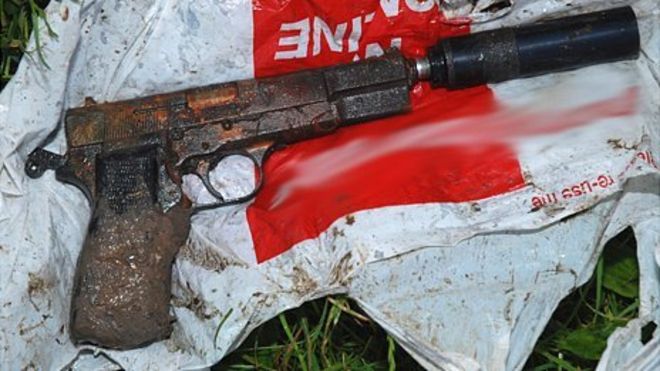

Criminal,General
Can the PDRM use torture to make you admit that you committed a crime?
over 7 years ago chiahoong limThe feature image above depicts a case of police brutality, which is unrelated to the topic of this article. You can read about that specific case here.
If you’ve heard stories or seen movies with good cop/bad cop scenes in them, coercion or even physical violence may be sometimes involved in extracting information and confessions out of accused or suspects. Now, the questions are: can the police beat a confession out of you, and can the confession then be used against you in court? To find out, we must examine a few Acts of Parliament that’s gonna help shed light on the situation.
Before that, a confession that people might understand from watching TV or movies may be very different from its actual legal definition...
What is Confession?

Not to worry, the definition of confession can be found in section 17(2) of the Evidence Act 1950:
...is an admission made at any time by a person accused of an offence, stating or suggesting the inference that he committed that offence.
It’s an admission by the suspect that suggests or outright states that they’ve committed the crime or offence. The way to recognize if a statement is a confession is if you were reading the statement the suspect made and taking into account he was not coerced or duress, you’re like “Damn, this guy did it”. For example, if Ah Chong said “Alright, I did it, I killed two of those women lah!”, and he did so voluntarily, you’d definitely think he could have done it. That’s a confession.
Plus, even if the suspect’s confession has what is known as “exculpatory parts”, which means that the suspect attempts to claim innocence in some aspects, the confession still counts.
4 methods the courts are not OK with to obtain confessions
Fortunately, no, the police cannot go to any lengths just to make suspects cough up a confession. The Evidence Act 1950 provides for most of the rules that govern evidence, including the exclusion of confessions that are made under certain circumstances. What are these circumstances, exactly?

The image above might be hilarious, because who’s gonna fall for that, right? But a more real world example would be something like “You had better tell the truth”? Coming from a person in the position of authority, you may just be pressured to make a possible false confession. Anyhow, inducement, threat or promise to obtain confessions can make said confession inadmissible in court, by virtue of section 24 of the Evidence Act 1950:
24. A confession made by an accused person is irrelevant in a criminal proceeding if the making of the confession appears to the court to have been caused by any inducement, threat or promise...
These kinds of confessions cannot be used in court against the defendant. The examples above might be very obvious attempts at inducing, threatening and promising, but they don’t have to be direct inducements, threats or promises. They can be subtle. Some phrases have been held to amount to threats or inducements include:
- “Tell me where the things are and I will be favourable to you” (R v Thompson) (Inducement or Promise)
- “If you do not tell me all about it, I will send for a constable” (R v Richards) (Threat)
- “You had better tell all you know” (R v Kingston) (Threat)
- “You must tell the truth or else you will be charged” (PP v Liik Ching Kwong) (Threat)
As long as the words from a person in authority had the effect of affecting the willingness of the accused to give a statement, it is sufficient to be considered inducement, threat or promise. Even a piece of advice like in Aziz bin Muhamad Din v PP where the accused was advised by his father to tell the truth, was held to amount to a threat.
Yep, if a confession was made to a ‘small fry’, as in any police officer under the rank of Inspector, the court won’t really take it into account. That’s provided under section 25 of the Evidence Act 1950:
25. (1) Subject to any express provision contained in any written law, no confession made to a police officer who is below the rank of Inspector by a person accused of any offence shall be proved as against that person.
Section 26 of the Evidence Act 1950 says that subject to express laws, confessions made in the custody of a police officer without the immediate presence of a Sessions Court Judge or Magistrate shall be thrown out.
26. (1) Subject to any express provision contained in any written law, no confession made by any person whilst he is in the custody of a police officer, unless it is made in the immediate presence of a Sessions Court Judge or Magistrate, shall be proved as against that person..
“In custody of a police officer” means that a person is in custody if he is in a state of being guarded and watched to prevent his escape. In Eng Sin v PP, a confession made to a doctor was excluded on grounds that the accused was in custody of the police at the time, despite being in a hospital.
An exception to section 26 (which means the confession WILL NOT be excluded) is when express laws allow for confessions to be made in police custody. Statements remain admissible if obtained under certain laws, including section 37A of the Dangerous Drugs Act 1952, the Moneylenders Act 1951, the Pawnbrokers Act 1972, section 21 of the Official Secrets Act and section 16 of the Kidnapping Act 1961, provided there were no threats, inducement or promise made and made to a police officer of or above the rank of Inspector.

On to the spicy stuff. Although Chinese water torture hasn’t been used in Malaysia, other methods of persuasion have been used, as can be seen below. Confessions made under oppression will be excluded in court. What is oppression exactly? Oppression was defined in R v Priestly as something that ‘saps that free will which must exist before a confession is voluntary’. R v Fulling describes it as unjust or cruel treatment of subjects or inferiors et cetera and the imposition of an unreasonable or unjust burden.
Relevant factors to determine whether a circumstance is oppression include:
- the characteristics of the accused
- the period of time during which he was questioned
- the length of time during which he was in custody
- whether he was given refreshment and opportunity to rest
This one deserves a paragraph on its own. In the case of PP v Chan Choon Keong, the accused was put into a room and was interrogated for a whole night with his hands handcuffed behind his back. Later while in lock-up, he was only allowed to wear his underwear and had to sleep on the cement floor without a blanket or a pillow. The interrogation lasted 4 days, on an occasion at odd hours, and during the period of interrogation he had water poured on him while he was facing an air-conditioner, forced to eat cili padi and having his request to see a doctor denied unless he co-operated with the police.
Besides physical oppression, the courts have not ignored elements of psychological oppression. In PP v Goh Kim Looi, a male police officer conducting an interview with the female accused in a small closed room was held to amount to psychological oppression.
If you remember, the discussion of section 25 above, that confessions made to police officers of the rank of Inspector and above are A-OK and won’t be excluded. But in section 26, it says that confessions made in the custody of a police officer will be excluded! The solution to this quandary is that section 25 only applies before any investigation has begun, or the case isn’t in the course of an investigation. For example, upon arrest, the accused confesses, but an investigation hasn’t commenced at that time, and the police officer was below the rank of Inspector, so the confession will be excluded.
Is it okay if the confession leads to the finding of evidence?

It’s not just murder weapons. Information leading to the discovery of drugs in a drug trafficking case, or the equipment used in an arson case is covered under section 27 of the Evidence Act 1950. Section 27 basically allows confessions that are made under circumstances covered in sections 24, 25 and 26 to be used in court if it leads to the discovery of a “fact”.
For example, in the case of Pulukuri Kottaya v Emperor, the statement:
“I will produce a knife concealed in the roof of my house with which I stabbed A”
was admitted because it actually led to the discovery of the knife. However, the part “with which I stabbed A” was excluded because it had nothing to do with the discovery of the knife.
So… can the police use ANY method at all to secure a confession that will lead to a discovery of fact? Prior to 1995, there were NO RESTRICTIONS on how the information under section 27 was obtained. It’s all good if it led to the discovery of a fact. Not only was section 27 regarded as separate from sections 24, 25 and 26, it was also free from the regulations in the Dangerous Drugs Act 1952 et cetera. According to the case of Wai Chan Leong v PP, it was fine even if the accused was forced into making such statements, as long as they lead to the discovery of a fact.
After a lengthy series of court cases, in the case of Wan Bakri bin Wan Ahmad v PP, Justice Low Hop Bing affirmed the approach in Francis Antonysamy v PP to reach a compromise between two extremes.
TL;DR: Section 27 is not absolute, which means you cannot use any means to justify the securing of a statement or confession leading to the discovery a fact (for example the discovery of a murder weapon), but the method used had to be so extreme to make the statement or confession inadmissible in court.
In Malaysia, the justice system seeks a balance between human rights and police investigation

There is a history of deaths in police custody in Malaysia, and although there are laws in place to somewhat prevent unethical methods to obtain confessions from accused persons, it can also be seen that it is important to the police that results are achieved in their investigations and sometimes things just go too far.
Then again, it is not a problem that is specific to Malaysia for enforcement agencies worldwide to employ these sort of methods to extract confessions or information from their captives. This piece of write-up in 2016 about the Chicago Police Department in the US showed how far the police were willing to go to enforce the law... in their own manner. Stories of corruption, torture, and scandals were rife and still haunts the organization to this day. Academics from the University of London have warned that false confessions have been on the rise, and it is suspected that 1 in 5 arrested persons confessed to a crime they haven’t committed.
To end this article. some of the NGOs in Malaysia that have made a stand and brought attention some of the police brutality and death in custody cases are SUARAM, SUHAKAM, and Lawyers for Liberty. These organizations have hotlines for people who need help for themselves and/or someone they know, and articles on the human rights situation that are very informative.
add me on overwatch my doggies shusui#11874